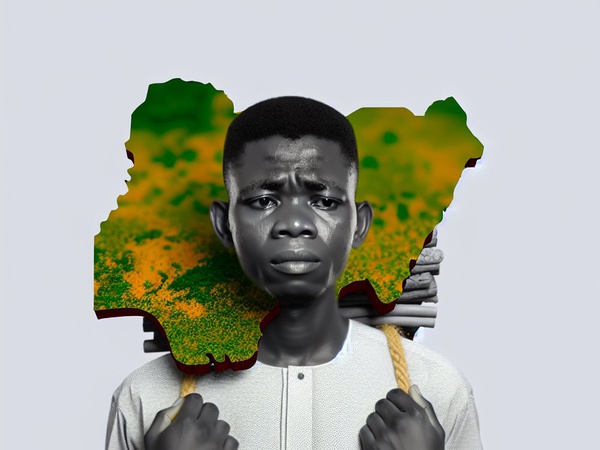<p>There is a monster that stalks young people in their 20's across Nigeria. It is not a creature of folklore or a spirit from ancestral tales. This monster is silent, yet ever present. It does not lurk in forests or under the bed, but within the mind. It feeds on confusion, anxiety, societal pressure, and the heavy burden of expectation. It is the mental toll of trying to figure out life in a society that expects everything at once a job, a spouse, a family, a fortune without delay or failure.</p><p><br></p><p>For many Nigerian youths, especially those living in urban centers like Lagos, Abuja, or Benin City, the transition into adulthood is not a gradual coming of age journey. It is a sudden leap off a cliff into uncertainty. Upon graduation or even during undergraduate years, the pressure begins to mount: “What next or Where are you now?" The options are as numerous as they are overwhelming . Finding a job in a country with a youth unemployment rate above 50% (NBS, 2023), start a business in an unstable economy with limited access to funding, get married before 30 (because time is ticking), or begin a family even when one is still grappling with personal identity.</p><p><br></p><p>The dilemma, often unspoken, is that all these options are expected to be pursued simultaneously. One must be financially stable, emotionally mature, socially responsible, and spiritually grounded all at once. This societal multitasking fuels an intense internal conflict in both young men and women. They are forced to ask: Am I falling behind? Am I a failure? These questions echo louder with each social media post from a peer announcing an engagement, a new car, or a thriving business.</p><p><br></p><p>The Pressure Cooker of Expectations</p><p><br></p><p>In Nigeria, family and communal values often shape one’s path. It is not uncommon for a parent to say, “Your mate just bought a car,” or “When are you bringing someone home?” These seemingly innocent comments, repeated over time, become mental weights. According to a study by (Obasi and Mba ,2021) social and familial expectations contribute significantly to anxiety and depression among young Nigerian adults. For women, the pressure to marry early and bear children becomes a defining point of their worth. For men, the pressure lies in financial success and the expectation to become providers often without access to stable jobs or capital.</p><p><br></p><p>The result is a generation of young people battling imposter syndrome, depression, anxiety disorders, and in some cases, suicidal ideation. The monster feeds on comparison and shame. When societal timelines are missed still jobless at 26, still unmarried at 30, still living with parents at 28 many feel worthless, not because they are, but because the metric of success has been externally defined and forcefully internalized.</p><p><br></p><p>The Mental Health Crisis in Silence</p><p><br></p><p>Mental health in Nigeria remains stigmatized. Many still see it as a spiritual or moral failing rather than a medical reality. According to the World Health Organization (WHO, 2022) one in four Nigerians is affected by mental illness, yet fewer than 10% have access to professional care. For youths, the problem is exacerbated by a lack of safe spaces to express emotional distress. Therapy is expensive and often inaccessible, and community or religious leaders, though well-meaning, may not be trained to address the psychological nuances of depression, anxiety, or trauma.</p><p><br></p><p>Additionally, the rise of social media has amplified the monster’s voice. Every scroll brings another life milestone achieved by someone else. The curated perfection seen online is internalized as a standard, leading to unhealthy comparisons. As noted by (Akande and Ayoola,2020) excessive social media use correlates with increased anxiety and depressive symptoms among Nigerian university students.</p><p><br></p><p>Hope in Community and Reimagining Success</p><p><br></p><p>Yet, amid the darkness, there is light. A growing number of Nigerian youths are beginning to speak openly about mental health. Online communities, podcasts, and NGOs such as Mentally Aware Nigeria Initiative (MANI) are creating platforms for dialogue and support. There is also an emerging consciousness that success is not a one size fits all timeline. More young people are defining fulfillment on their own terms choosing healing before hustle, therapy before tradition, self discovery before societal approval.</p><p><br></p><p>The monster may never fully disappear, but naming it gives power. It is the pressure to perform, to conform, and to be everything at once. But young people in their 20's must be reminded that it’s okay to pause, to breathe, to not have it all figured out. The journey is not a race. Life, especially in a country as complex and dynamic as Nigeria, unfolds differently for everyone.</p><p><br></p><p><br></p>


Comments